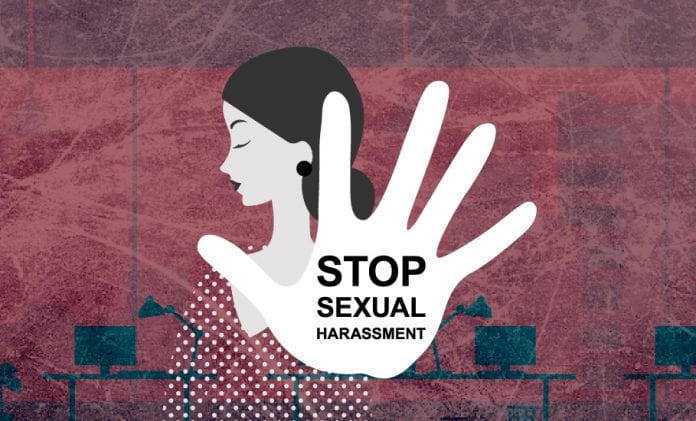Latest News
Dr. Prasad Pannian v. Central University of Kerala

What constitutes sexual harassment? Women are prodigiously the victims of sexual harassment and a smaller percentage of men are also harassed by women or other men. The victim’s experience of sexual harassment can range from uncomfortable to devastating, around 40-50% of women in EU countries and 30-40% of women in Asia-Pacific countries experience some form of workplace sexual harassment. But what do you mean by Sexual harassment? The High Court of Kerala cleared the wrong ideas which constitute the offense of sexual harassment under the Sexual Harassment of Women at Workplace (Prevention, Prohibition, and Redressal) Act, 2013 (POSH Act).
Facts:
A complaint was registered against the petitioner Dr. Prasad Pannian, based on an inquiry under the provisions of the POSH Act. The petitioner contended that the allegations did not disclose any form of sexual harassment under the said Act.
The petitioners argued that the provisions of the Posh Act cannot be given wide interpretation as envisaged by the lower court in the reference order. It was pointed out that harassment can be meted out against an individual in different forms and only in instances where the harassment has an element of sexual advance in some form. The discrimination in sex between two individuals cannot be sexual harassment even if there was harassment. The counsel for the petitioner argued that the provisions of the Posh Act have to be given a strict interpretation since any action by the complainant will amount to defamation and integrity of the opposite sex and may lead to penal consequences.
The single judge in the reference order had placed reliance on Anil Rajagopal v. State of Kerala & Ors, to define ‘Sexual Harassment’ under Section 2(n) of the Posh Act, 2013. Under Section 2(n) of Posh Act, “sexual harassment” includes any one or more of the following unwelcome acts or behaviors namely: --
i. Physical contact and advances; or
ii. a demand or request for sexual favors; or
iii. making sexually colored remarks; or
iv. showing pornography; or
v. any other unwelcome physical, verbal or non-verbal conduct of sexual nature;
The learned counsel of the University supported the view taken by the single judge in reference order. The counsel placed reliance on the judgment of the Supreme Court in Nisha Priya Bhatia v. Union of India and ors where the court held that “the approach of law as regards the cases of sexual harassment at workplace is not confined to cases of the actual commission of acts of harassment it also covers situations wherein the woman employee is subjected to prejudice, hostility, discriminatory attitude and humiliation in day to day functioning at the workplace. Taking another view would defeat the purpose of the law.”
The learned counsel appearing for the complainant submitted that sexual harassment can be of different forms, and also the definition of sexual harassment in the Posh Act, 2013 is not exhaustive. The counsel contended that any form of sexual intimidation or discrimination or behavior which tends to attract harassment only on account of sex difference can also be characterized as sexual harassment. She also relied on the judgment of the Delhi High Court in Dr. Punita K. Sodhi v. Union of India & ors, in which the court held that Incidents of sexual harassment ought not to be viewed in isolation, the other parts of the complaint are also relevant in determining whether there was any determined conduct of the offender which could be termed as sex-based discrimination or harassment.
Judgment:
The Kerala High Court division bench of Justices AM Shaffique and P Gopinath after hearing all the parties considered that there is no dispute to the fact that sexual harassment of women at the workplace will result in the violation of fundamental rights of equality, enshrined under Article 14 and 15 of the Constitution of India and her right to live with dignity under Article 21 of the Constitution.
The court held that apparently it is an inclusive definition and only a few unwelcoming acts or behavior had been mentioned under Section 2 (n) of the Posh Act. The court held that there might be other instances as well, any such unwelcome behavior could be either direct or indirect can be constituted as Sexual Harassment.
The court held that any act which tends to affect the women in the form of provisions under Section 3(2) would amount to sexual harassment only if such act or behavior of sexual harassment. The court finally clarified that any form of sexual approach or behavior that is unwelcome will come under the definition of ‘Sexual harassment’ and it will not be confined to Section 2(n) and which will be subject to the materials placed on record and a case to case basis. Also, the acts complained will come under the purview of Section 3 of the Act or any other form of sexual treatment or sexual behavior on the part of the respondent.
Document:



































































































